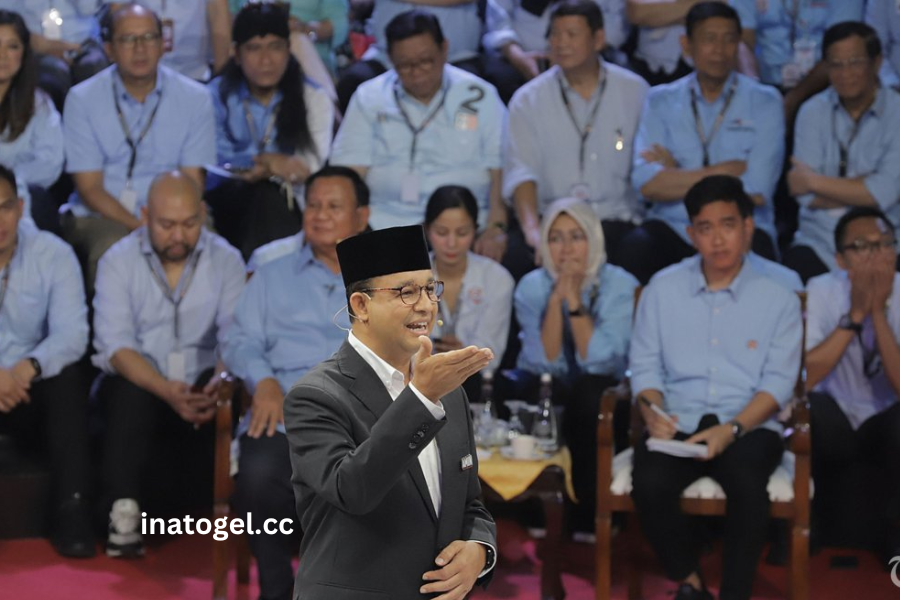The debate over moving Indonesia’s capital from Jakarta to the newly planned Nusantara (IKN) in East Kalimantan has sparked significant discourse among political figures and the public alike. Anies Baswedan, former Governor of Jakarta, recently responded to Central Java Governor Ganjar Pranowo’s comments on this issue with a pointed remark: “Don’t imitate the Netherlands.” This article delves into the context, implications, and various perspectives surrounding this controversial topic.
Introduction to the Capital Relocation Debate
The idea of moving Indonesia’s capital from Jakarta to Nusantara (IKN) has been a topic of discussion for years. The move is intended to alleviate Jakarta’s urban problems and promote more balanced regional development. However, it has also faced criticism and sparked a heated debate among politicians, experts, and the public. This article explores the different facets of this debate, focusing on the recent exchange between Anies Baswedan and Ganjar Pranowo.
Background on Jakarta’s Challenges
Jakarta, Indonesia’s bustling capital, faces numerous challenges including severe traffic congestion, air pollution, flooding, and overpopulation. These issues have led to discussions about relocating the capital to a new, less congested area. The government’s proposal to move the capital to Nusantara aims to address these challenges and promote economic growth in other parts of the country.
The Proposed New Capital: Nusantara (IKN)
Nusantara, the proposed new capital city, is located in East Kalimantan on the island of Borneo. The government envisions Nusantara as a smart, green city that will become the new administrative center of Indonesia. The move is part of a broader plan to decentralize development and reduce the burden on Jakarta.
Ganjar Pranowo’s Stance on the Capital Move
Ganjar Pranowo, the Governor of Central Java, has been vocal in his support for relocating the capital. He believes that the move will help solve Jakarta’s problems and stimulate economic growth in Kalimantan. Ganjar’s support for the project aligns with the government’s vision of creating a more balanced development across Indonesia’s regions.
Anies Baswedan’s Counterpoint: “Don’t Imitate the Netherlands”
Anies Baswedan, former Governor of Jakarta, has expressed reservations about the capital relocation plan. His recent comment, “Don’t imitate the Netherlands,” suggests a caution against replicating foreign models that may not be suitable for Indonesia. Anies argues that instead of moving the capital, efforts should be focused on solving Jakarta’s existing problems.
Historical Context: Capital Relocation Worldwide
Capital relocation is not a new concept and has been undertaken by several countries throughout history. Brazil moved its capital from Rio de Janeiro to Brasília in 1960, while Nigeria relocated its capital from Lagos to Abuja in 1991. This section explores these examples and their outcomes, providing a comparative context for Indonesia’s plan.
Environmental Considerations
One of the key arguments against moving the capital is the potential environmental impact. Nusantara’s location in East Kalimantan, an area rich in biodiversity, raises concerns about deforestation, habitat destruction, and other ecological consequences. Critics argue that the environmental costs may outweigh the benefits of the move.
Economic Implications
The economic implications of moving the capital are significant. The construction of Nusantara is expected to cost billions of dollars, raising questions about funding and economic priorities. Proponents argue that the investment will pay off in the long term by promoting regional development, while critics worry about the opportunity cost and potential financial burden.
Social and Cultural Impact
Moving the capital will also have social and cultural implications. The relocation involves moving thousands of government employees and their families, which could disrupt communities and cultural ties. Additionally, the new capital may attract a diverse population, leading to changes in the social fabric of the region.
Political Reactions and Public Opinion
The debate over the capital move has elicited strong reactions from politicians and the public. Supporters argue that the move is necessary for Indonesia’s future growth, while opponents believe it is a misguided use of resources. Public opinion is divided, with many Indonesians concerned about the practicalities and implications of such a significant change.
Infrastructure and Urban Planning Challenges
Building a new capital from scratch presents numerous infrastructure and urban planning challenges. Ensuring that Nusantara has the necessary transportation, utilities, and services to support its population is a complex task. This section explores the logistical hurdles and the planning required to create a functional and sustainable new city.
Comparative Analysis: Jakarta vs. Nusantara
Comparing Jakarta with the proposed Nusantara highlights the differences and potential benefits of the move. Jakarta’s established infrastructure and economic activity contrast with the planned modern amenities and green spaces of Nusantara. This analysis provides insights into what each city offers and the potential trade-offs involved in the relocation.
Lessons from the Netherlands
Anies Baswedan’s reference to the Netherlands suggests a need to learn from international experiences. The Netherlands, known for its urban planning and water management, offers valuable lessons but also presents challenges unique to its context. This section explores what Indonesia can learn from the Dutch experience and why Anies cautions against direct imitation.
The Future of Urban Development in Indonesia
The debate over the capital move reflects broader questions about urban development in Indonesia. Balancing growth, sustainability, and livability in cities across the country is a critical challenge. This section examines potential strategies for addressing urban issues in Jakarta and other Indonesian cities without resorting to relocation.
Conclusion
The decision to move Indonesia’s capital from Jakarta to Nusantara is complex, involving numerous factors and stakeholders. Anies Baswedan’s response to Ganjar Pranowo highlights the ongoing debate and the need for careful consideration. Ultimately, the success of this ambitious project will depend on thorough planning, sustainable practices, and addressing the concerns of all involved parties.
In conclusion, the conversation between Anies Baswedan and Ganjar Pranowo underscores the multifaceted nature of the capital relocation issue. By examining historical precedents, environmental impacts, economic implications, and social considerations, stakeholders can better understand the potential benefits and challenges of this monumental decision. As Indonesia continues to develop and grow, the debate over its capital’s future remains a pivotal topic in the nation’s urban and political discourse.

Leave a Reply